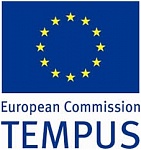Program

Program implementation period:
1998.01 - 2016.12
Program short title:
TEMPUS
Program full title:
Trans-European Mobility Programme for University Studies
Program website:
http://www.tempus-russia.ru/
Program category:
Educational
Priorities:
Support of the modernization of higher education in the partner countries of Eastern Europe, Central Asia, the Western Balkans, and the Mediterranean region, mainly through university cooperation projects.Enhancement of cooperation in higher education between the European Union and the partner countries within the framework of the Lisbon Strategy and Bologna Process implementation.
Establishment and enhancement of interpersonal contacts.
Organization of topical workshops and discussion of new projects, exchange of experience.
News and events program:
On December 8, 2014, an Information Session on the Erasmus+ program was held in Moscow. For detailed description and registration form, please visit www.erasmusplusinrussia.ru.On June 26, an Information Session on the Erasmus+ program was held in Moscow.
As part of the session, representatives of the Education, Audiovisual and Culture Executive Agency (EACEA) and Erasmus+ National Agency presented various areas of activity within the program. New opportunities and procedures for the participation of Russian educational institutions in Erasmus+ were also discussed.
The final fourth stage of the TEMPUS program ended in 2013. In 2014, a new major program of the European Union was implemented – Erasmus+, which will be running until 2020. The new program focuses on education and training, youth and sports. It aims to replace a number of stand-alone European programs, including Erasmus Mundus, TEMPUS, Leonardo da Vinci, etc. The implementation of the program will be managed by the Education, Audiovisual and Culture Executive Agency (EACEA).
On April 26-27, 2012, a Russian–German Seminar on the Enhancement of Collaboration within the Programs of Interuniversity Cooperation in the EU was held in Kazan. In the course of the seminar, new opportunities for cooperation within the programs of the European Union were presented, and best practices of the Tempus projects were demonstrated. Seminar participants showcased their project ideas. The seminar was held by the National Contact Center of the Tempus program of the German Academic Exchange Service (DAAD) in association with the Tempus National Agency in Russia.
Current Projects
- A Methodology for the Formation of Highly Qualified Engineers at Master's Level in the Design and Development of Advanced Industrial Information Systems (MEDIS)
- Engineering Curricula Design aligned with EQF and EUR-ACE Standards
- E-Internationalization for Collaborative Learning
- Reformation of the Curricula on Built Environment in the Eastern Neighboring Area (CENEAST)
- Network for excellence in tourism through organizations and Universities in Russia (NETOUR)
- Enhancement of Russian Creative Education: New Master Program in Digital Arts in Line with EU Standards (ENDMA)
- International MA Course "Ensuring of Product Life Cycle Technological Processes Efficiency" at Russian Universities (SUCCESS)
- On-line Quality Assurance of Study Programs (EQUASP)
- International networking for modernization of tourism education and developing academic mobility TEMPUS INTOUR
- Development of the Model for Professional Recognition of Foreign Qualifications in Russia TEMPUS PRIMO_RF
